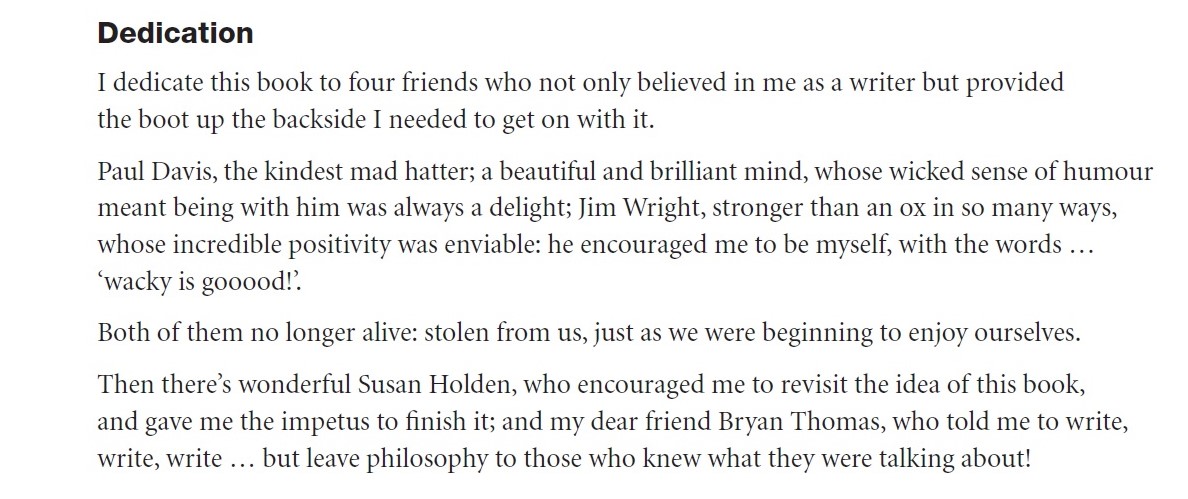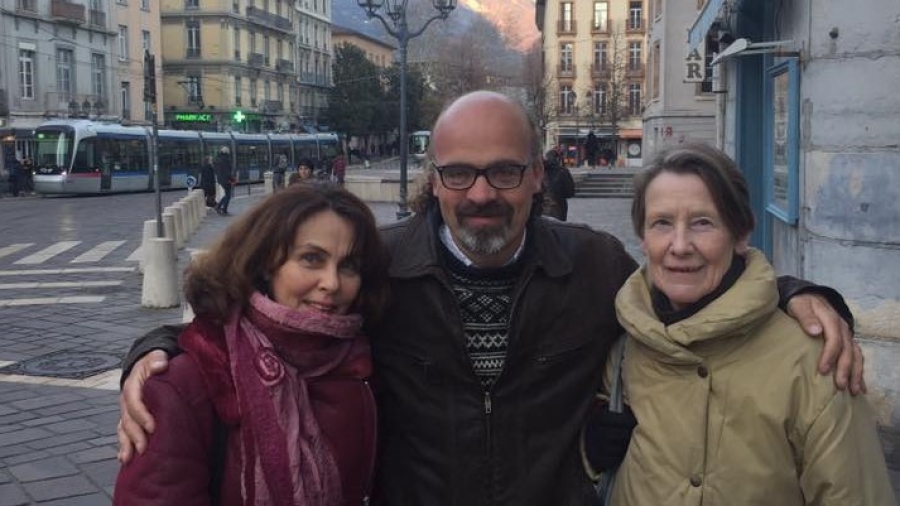Susan Holden was an editor, publisher, author, public speaker, councillor, teacher, teacher trainer and to me, she was a dear friend. I only knew her for what was to become the latter years of her life, nevertheless the influence she had upon mine was remarkable. I know I am just one of many who have equal cause to credit her for having such a positive impact on their lives.
We were first thrown together in 2017 for a conference of English teachers in Paris – the TESOL France annual Colloquium – where we had been invited to co-host a discussion panel on the ‘native/non-native teacher debate’. Susan was the wonderfully eloquent native, and I was, perhaps due to a combination of my Scandinavian background, an anomaly, to represent the non-native. Susan summed up the purpose of the discussion in a video saying it was to “encourage people to use their own experiences to talk about anything that they’ve come up against in their professional or personal lives.” Susan’s words would describe, not just the foundation of our personal friendship, but the important legacy she was to leave English teaching and the English Language Teaching world when she died on 21st July 2023.
Like for so many teachers of English as a second or other language, Susan’s career hadn’t exactly gone the way she had imagined when after school she had set her heart on becoming a theatre director. For a while she was on the right track, she trained as a drama teacher for schools in the UK and then went to Paris to research French mediaeval theatre.
Returning to London in the swinging sixties she found a job for an advertising agency preparing props and costumes for photo-shoots. But as John Lennon said, ‘life is what happens to you when you’re busy making other plans’ and Susan went off at a tangent to teach English in Italy, then Canada.
When we met many years later, we hit it off immediately. First introducing ourselves to one another on the phone ahead of Paris. Susan fondly recollected, how she’d been taken aback by my East Anglian enunciation, not a bit like the sing-song Swedish Chef hurty flurty bork bork bork, that of course I would have forgiven her had she expected it. That was the very purpose of our panel discussion. To identify ways to help combat such ignorance and preconceived notions and we successfully ruffled many feathers.
Our panel discussion was repeated in different cities giving us opportunities to socialise, having ¡A tapear! tapas and beers in Madrid, a city tour of Grenoble and dinner with Andrew and Csilla Jaray Benn until Susan came to my home in Hamburg to stay with Alma and me for a HELTA English at Work Conference.
Whenever Susan could, it seemed, she would drive, jumping at the opportunity to combine attending a teaching conference with a road trip visiting friends along the way. Hungary, Poland, Switzerland, Italy, I had trouble keeping up with Susan’s admirable wanderlust and free spirit that continued well into her later years.
Then in 2019 after IATEFL – an international gathering of English teachers from around the globe – in Liverpool, it was my turn to take a road trip, which took me to Susan’s doorstep at her beautiful home, Teithside House, beside the river Theith. An 18th century stone 3-bay building set in a prominent position in Callander, a small town in central Scotland, made famous by the works of Sir Walter Scott, or perhaps Doctor Finlay; both of whom, I imagined may also have dallied there once upon a time.
Susan’s journey to Callander, a curriculum vitae from those early days of theatre studies, was nothing short of an exhaustive list of achievement and recognition. From teaching she had gone on to found the magazine, Modern English Teacher which continues to thrive, she collaborated on training programmes with the British Council, ran one publishing company, then worked as publishing director for Macmillan ELT before setting up her own company (again) to produce and publish materials for Central Europe and Latin America.
Once in Callander, she ran her own publishing company, Swan Communication, re-publishing Peter Medgyes,’ The Non-native teacher’ in 2017. Susan was also Chairperson of the Community Council and Community Development Trust. If I mention her in conversation with others who knew Susan, I am reminded that I was a small part of her full and busy life. When sharing memories with teacher trainer Ian Badger, for example, I understood how prolific Susan had been in so many fields.
The very natural way Susan was able to motivate others to share their experience together with her collected experience of writing and publishing over the years gave her the confidence to speak her mind. When she liked something, she made sure everyone knew about it, if she didn’t, she had no fear of saying so. This commanded respect, not just from teachers but of the larger publishing houses who consulted her about the publication of many titles. As well as being listened to, she had that rare capability and quality of really listening and understanding.
Fortunately, I experienced this when I explained to Susan an idea I had for a book that I felt would provide a useful teaching resource. Having it turned down by all the publishers I had approached, I’d become despondent and fallen into a long period of procrastination. Hearing this Susan began to weave the same magic on me as she had done for so many others.
She encouraged and guided, listened, read parts during the writing process, inserted a positiveness where there had been procrastination and suggested another publisher, who did like it and made it a part of their teacher development series. There was never doubt about who I would dedicate it to and Susan was an important part of that group.
The last time I saw her, was again at the IATEFL Conference, in Manchester. She was concluding a meeting with a young man I didn’t know but heard her tell him “You will do great things young man.” Susan was weaving her magic again!
Susan Holden became more than just a dear friend to whom I shall always be grateful but also a mentor, guide and magician. As Susan is no longer around to impart her experience, wisdom and ideas in person you can find many of them in her excellent article “From Ideas to Reality” published by Humanising Language Teaching in April 2019.


